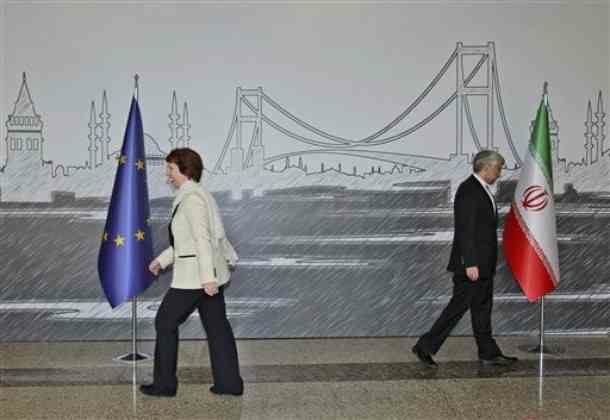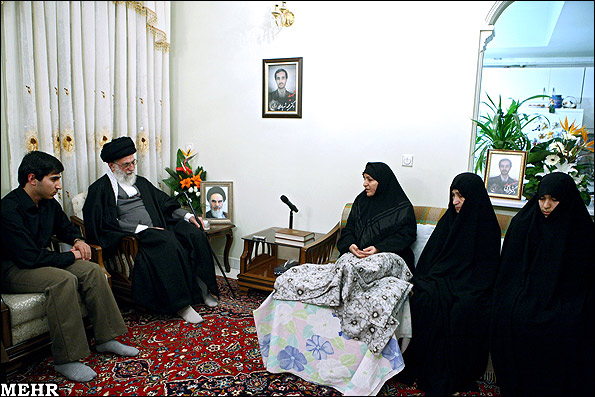Iran Special: The Inside Story of the Nuclear Talks in Istanbul (Rozen)
See also Iran Special: Why Both Sides Shifted in Nuclear Talks --- And What Comes Next
 Europe's Catherine Ashton and Iran's Saeed JaliliOver the last three days, we have put out the analysis that 1) sanctions played a role in bringing Iran to the negotiating table over its nuclear programme; 2) Tehran's strategy is to get an easing of those sanctions before it makes any commitment on enrichment of uranium; and 3) the Islamic Republic is concentrating on the European representatives, especially the European Union's Catherine Ashton, to achieve this by splitting them from any "hard line" of the US.
Europe's Catherine Ashton and Iran's Saeed JaliliOver the last three days, we have put out the analysis that 1) sanctions played a role in bringing Iran to the negotiating table over its nuclear programme; 2) Tehran's strategy is to get an easing of those sanctions before it makes any commitment on enrichment of uranium; and 3) the Islamic Republic is concentrating on the European representatives, especially the European Union's Catherine Ashton, to achieve this by splitting them from any "hard line" of the US.
In the most detailed account of last weekend's Istanbul talks so far, Laura Rozen of Al Monitor narrates the story of how the discussions almost collapsed while supporting our interpretation of the Iran's hopes, fears, and manoeuvres:
New details on the Iran nuclear talks in Istanbul this weekend, which were largely touted as being "positive", now show the meeting had, in fact, deteriorated.

 Tuesday, April 17, 2012 at 7:46
Tuesday, April 17, 2012 at 7:46



